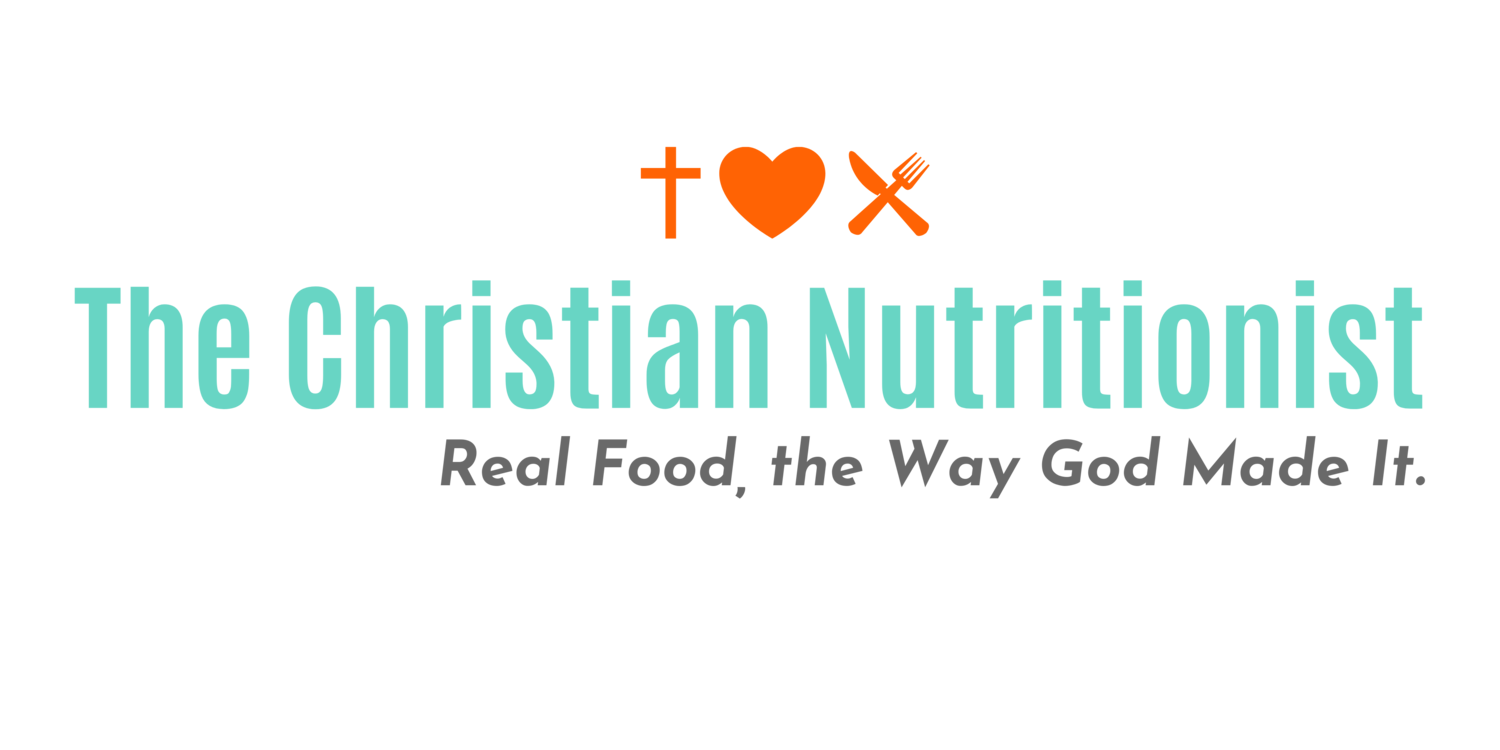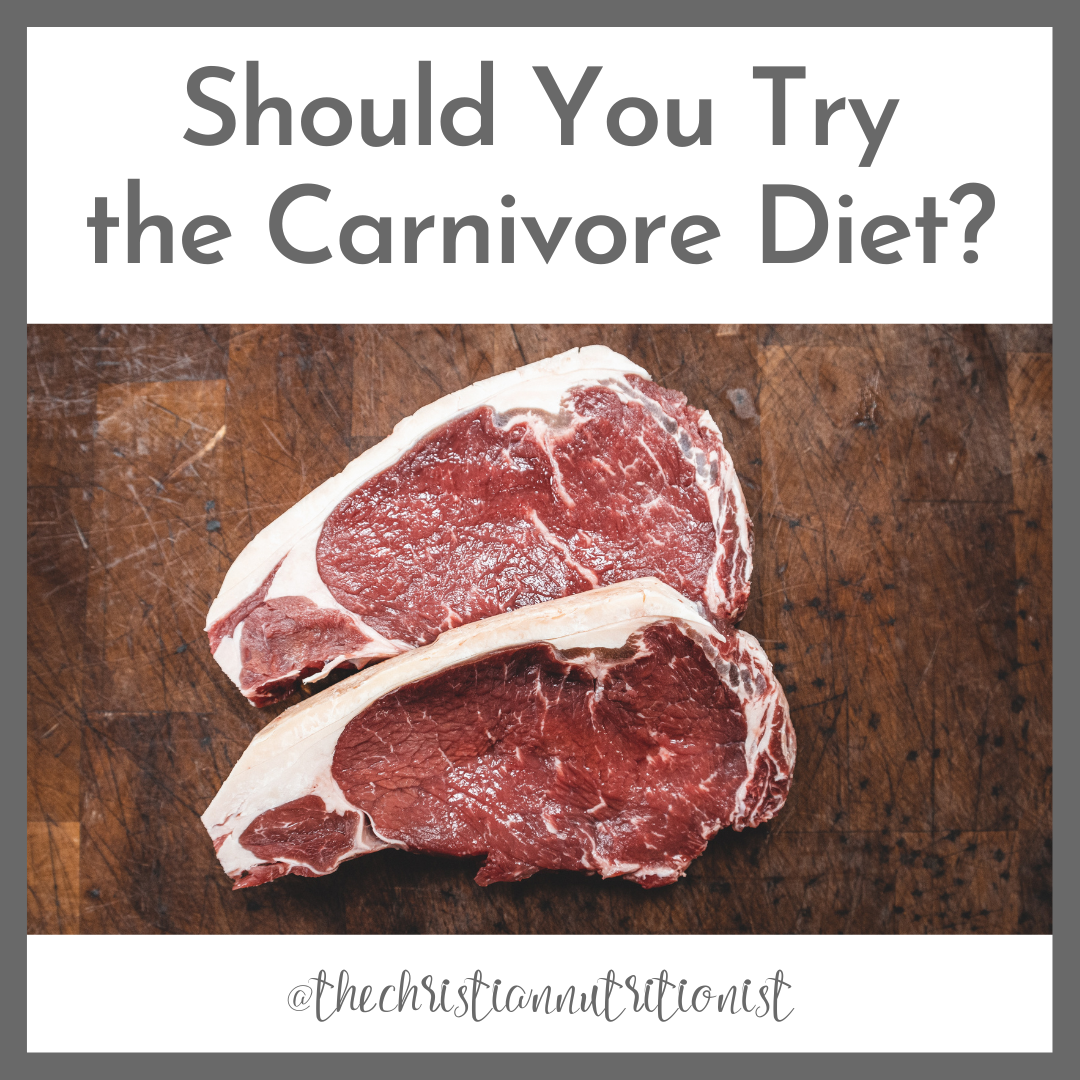Should You Try The Carnivore Diet?
Have you heard of The Carnivore Diet? If you haven’t, you will. It’s the new kid on the dietary block and it’s just like it sounds: an all-meat diet. That’s right, no vegetables, fruit, legumes, grains, legumes, starches, nuts, or seeds. It’s often referred to as the Zero Carb diet which means no plant foods. It’s all protein and fat from animal sources.
Sounds kind of crazy, right? How could eating ALL meat and no vegetables be good for you? Why would anyone even want to do that?
The Carnivore Diet has been gaining traction over the last few years. Followers are reporting improvement in some or all of the following areas: weight loss, digestion, cardiovascular health, curing or reversing disease, inflammation, mood, mental clarity, testosterone levels, and energy levels. Sounds amazing, right? But how could anyone get results like that without plant foods?
Believe it or not, some people cannot tolerate plant foods. Vegetables, fruits and grains are packaged with anti-nutrients like lectins and phytic acid that can block your body from absorbing vitamins and minerals and also be very hard to digest. This is by design. If we think of the plant and animal kingdom, we obviously know that animals have a built in defense system like teeth and claws and stingers and venom. But plants have their own defense system too, with these compounds that can wreak havoc on the body.
People with compromised digestive systems, existing health issues, and autoimmune conditions are often more sensitive to these plant compounds. Also potentially problematic for people is the fiber found in plant foods. By removing the fiber and anti-nutrients, some people are finding relief for the first time in years. But is it safe and effective in the long-term?
Caitlin Weeks, known as GrassFed Girl on Instagram, is a popular Paleo and Keto influencer who has reported huge improvements by eating a Carnivore Diet, including relief for her Hashimoto’s autoimmune thyroid condition. What does a typical day of eating look like for her?
Meal 1: ground beef patties with butter
Meal 2: ribeye or NY strip
She may also add in eggs, pork rinds or no-sugar jerky for a snack, plus other animal-based foods like salmon, pork or full fat dairy to get a little variety. But, mostly, it’s red meat.
Now I am all for a juicy hamburger or delicious ribeye. I mean, I AM married to a cattle rancher who raises grass-fed beef. But every day, day in and day out?
To me, The Carnivore Diet is another example of aggrandizing extreme macronutrient manipulation. If we look back over the last 40 years, we see the trend of singling out a major macronutrient as the “savior” for all of our health problems.
Remember when carbs were king back in the food pyramid days? The government told us to eat loads of pasta, bread and cereal but to stay away from fat. That’s exactly why we have more diabetes and obesity than ever. Thanks, government.
Then we saw protein become the star of the show when the Atkins diet was all the hype.
More recently, fat has been the ultimate comeback kid, enjoying an incredible renaissance with the popularity of the ketogenic diet.
And, now, we have The Carnivore Diet - all meat (protein and fat).
The truth is, sometimes these extreme diets can be helpful and necessary as a THERAPEUTIC SOLUTION for people experiencing certain conditions. As a Nutritional Therapist, this is my wheelhouse, this is exactly what I do, assessing people’s nutritional needs to best support their body. But, y’all, these extreme diets aren’t a blanket solution for the masses. You don’t want to be swinging from one macronutrient extreme to the other because it can really mess you up.
What most people need is a consistent balance of the macronutrients (protein, fat, carbs). God gave us plant foods (Genesis 1:29) AND animal foods (Genesis 9:3).
He created our bodies and the perfect food FOR our bodies. Each macronutrient offers something important to our health and we do best with a variety of foods.
If people would quit wasting time chasing the next big diet and settle into a consistent lifestyle of Real Food, the way God made it, better health would fall into place naturally. But jumping from one new plan to the other is straight-up yo-yo dieting and that will always come back to bite you in the butt in the long-term.
Here’s my recommendation as your Christian Nutritionist:
Make Real Food your diet. It doesn’t have to be perfect (I love me some crackers, cookies and wine!) but it does need to be consistent. It’s not always the fastest solution, but it’s the most effective and the most sustainable. If you need help, guidance and accountability in doing this, join us in the next round of Feast 2 Fast. Let me teach you, pray for you and set you up with an awesome way of life.
If you’ve been consistent in a Real Foods diet but are still experiencing health or weight problems, it’s time to dig deeper. Let’s see what’s going on and where your body may need extra support. You can do that by scheduling a 1:1 consultation with me here. If you need a more extreme therapeutic plan or food sensitivity testing, I’ll tell ya.
I hope you found this post helpful. It is always my goal to shoot you straight and remind you to keep God as your compass, including in the way that you eat.



